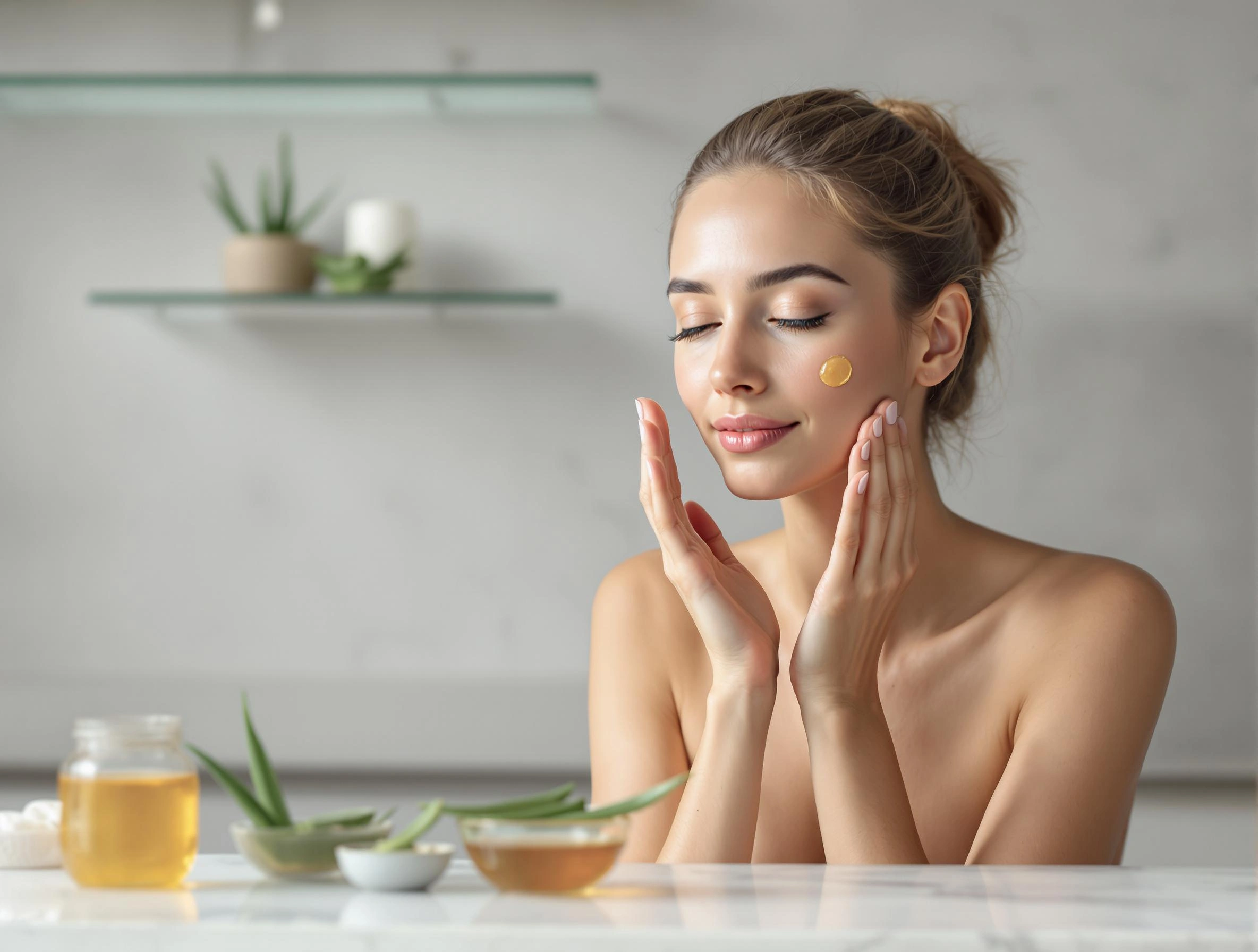The Ultimate Guide to Natural Face Masks for Radiant and Glowing Skin
Introduction
In the quest for flawless, glowing skin, many people turn to expensive skincare products packed with synthetic ingredients. However, nature offers a treasure trove of remedies that can nourish, rejuvenate, and enhance your complexion without harsh chemicals. Natural face masks, made from ingredients like honey, avocado, turmeric, and yogurt, provide deep hydration, exfoliation, and brightening effects while being gentle on the skin.
This comprehensive guide explores the best natural face masks for different skin types, their benefits, and how to use them effectively. Whether you have dry, oily, combination, or sensitive skin, you’ll find a mask that suits your needs. We’ll also discuss key ingredients, DIY recipes, and expert tips to maximize results. By the end, you’ll have all the knowledge needed to achieve a radiant, healthy glow—naturally.
1. The Benefits of Natural Face Masks
Natural face masks offer numerous advantages over commercial products:
A. Free from Harsh Chemicals
Many store-bought masks contain parabens, sulfates, and artificial fragrances that can irritate the skin. Natural masks use organic ingredients that are gentle yet effective.
B. Rich in Nutrients
Ingredients like honey (antibacterial), turmeric (anti-inflammatory), and aloe vera (soothing) provide essential vitamins and antioxidants that promote skin health.
C. Cost-Effective & Customizable
DIY masks are affordable and can be tailored to address specific skin concerns, such as acne, dryness, or hyperpigmentation.
D. Eco-Friendly
Using natural ingredients reduces plastic waste and environmental impact compared to packaged skincare products.
2. Key Ingredients for Glowing Skin
Different ingredients target various skin issues. Here are some of the most effective natural components for face masks:
A. Honey
- Benefits: Moisturizes, fights acne, and brightens skin.
- Best for: Dry, acne-prone, and dull skin.
- Recipe Idea: Mix honey with cinnamon for an antibacterial mask.
B. Turmeric
- Benefits: Reduces inflammation, lightens dark spots, and evens skin tone.
- Best for: Hyperpigmentation and sensitive skin.
- Recipe Idea: Combine turmeric with yogurt for a brightening mask.
C. Avocado
- Benefits: Deeply hydrates and provides essential fatty acids.
- Best for: Dry and mature skin.
- Recipe Idea: Mash avocado with olive oil for intense moisture.
D. Yogurt
- Benefits: Exfoliates dead skin cells and soothes irritation.
- Best for: Oily and combination skin.
- Recipe Idea: Mix yogurt with oatmeal for gentle exfoliation.
E. Aloe Vera
- Benefits: Calms redness and promotes healing.
- Best for: Sensitive and sunburned skin.
- Recipe Idea: Apply pure aloe vera gel as a cooling mask.
3. Best Natural Face Masks for Different Skin Types
A. For Dry Skin
Avocado & Honey Mask
- ½ ripe avocado
- 1 tbsp honey
- 1 tsp olive oil
- Method: Blend ingredients, apply for 15 minutes, then rinse.
- Benefits: Deep hydration and nourishment.
B. For Oily Skin
Clay & Apple Cider Vinegar Mask
- 1 tbsp bentonite clay
- 1 tbsp apple cider vinegar
- 1 tsp water
- Method: Mix into a paste, leave for 10 minutes, then wash off.
- Benefits: Absorbs excess oil and unclogs pores.
C. For Combination Skin
Yogurt & Turmeric Mask
- 2 tbsp plain yogurt
- ½ tsp turmeric
- 1 tsp honey
- Method: Apply for 15 minutes, then rinse.
- Benefits: Balances oil production and brightens skin.
D. For Acne-Prone Skin
Tea Tree & Honey Mask
- 1 tbsp honey
- 2 drops tea tree oil
- 1 tsp aloe vera gel
- Method: Leave on for 10-15 minutes before washing.
- Benefits: Fights bacteria and reduces breakouts.
E. For Sensitive Skin
Oatmeal & Aloe Vera Mask
- 2 tbsp ground oatmeal
- 1 tbsp aloe vera gel
- 1 tsp honey
- Method: Apply for 10 minutes, then rinse gently.
- Benefits: Soothes irritation and reduces redness.
4. Tips for Maximizing Results
- Patch Test First: Always test a small area to check for allergies.
- Use Fresh Ingredients: Opt for organic, chemical-free components.
- Apply on Clean Skin: Wash your face before masking for better absorption.
- Don’t Overuse: Limit masks to 2-3 times per week to avoid irritation.
- Follow with Moisturizer: Lock in hydration after rinsing off the mask.
5. Common Mistakes to Avoid
- Leaving Masks On Too Long: Can lead to dryness or irritation.
- Using Harsh Scrubs: Over-exfoliation damages the skin barrier.
- Ignoring Skin Type: Not all masks work for everyone—choose wisely.
- Mixing Incompatible Ingredients: Some combinations (e.g., lemon + sunlight) can cause burns.
6. Final Thoughts: Achieving Radiant Skin Naturally
Natural face masks are a powerful, chemical-free way to enhance your skin’s health and glow. By selecting the right ingredients for your skin type and following best practices, you can achieve noticeable improvements in texture, tone, and hydration.
Best Overall Mask: For most skin types, a honey and turmeric mask offers balanced brightening, antibacterial, and soothing properties.
Incorporate these DIY treatments into your skincare routine, and enjoy the transformative power of nature’s finest ingredients. Your skin will thank you!
Would you like any modifications or additional details on specific masks? Let me know how I can refine this further!









Add comment